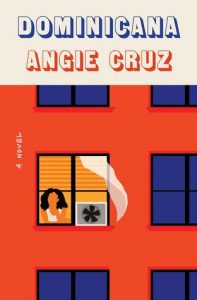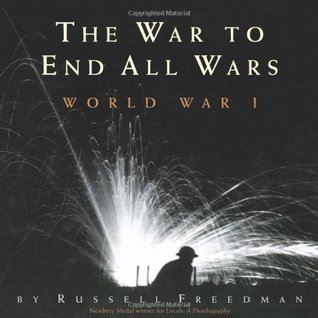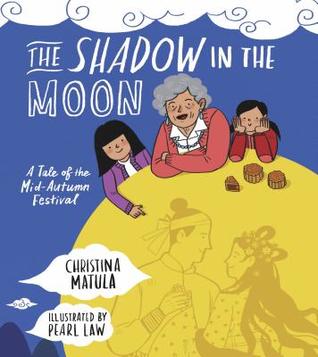Every year on Remembrance Day, we remember the sacrifices made in World War I. I’ve written about it several times before with children’s picture books: The Eleventh Hour by Jacques Goldstein (reviewed here), Why? by Nikolai Popov and Terrible Things by Eve Bunting (reviewed here), and Once a Shepherd by Glenda Millard & Phil Lesnie (reviewed here), all titles I still recommend for all ages for Remembrance Day and beyond. But truth be told, I’m not much of a history buff: I didn’t pay that much attention in grade 10 Canadian history, and it kind of only came to me this year that I don’t actually know/remember what the causes of WWI were (yikes, I know). I remembered that there were several underlying causes that made the conditions ripe for the explosion of war with one event (though what that event was, I had also forgotten), but the details were lost to me. So if you, like me, weren’t paying attention in Canadian history class back in high school, let’s revisit the causes that led up to the Great War together as we remember those who lost their lives to the war.
Continue readingAll posts by Karen
Latin American & Hispanic Heritage Month
 October is Latin American & Hispanic Heritage Month* in Canada, as well as Women’s History Month! So with that, I figured I should spotlight a title that talks about the intersection between Latin American heritage and gender.
October is Latin American & Hispanic Heritage Month* in Canada, as well as Women’s History Month! So with that, I figured I should spotlight a title that talks about the intersection between Latin American heritage and gender.
Dominicana by Angie Cruz was shortlisted for the Women’s Prize for Fiction for 2020. Cruz was inspired by her mother’s experience in writing Dominicana, though when Cruz presented her mother with the idea of writing this novel, “the older woman was apparently unconvinced: “Who would be interested in a story about a woman like me? It’s so typical.” Typical but rarely represented among mainstream narratives, Cruz counters” (Anderson, Dominicana by Angie Cruz Review in The Guardian). The fate of her entire family – their upward mobility and the way out of the Dominican Republic – rests upon 15-year old Ana’s marriage to Juan Ruiz, a man more than twice her age, who promises to whisk her away to New York (her family to be brought over after). Once in New York, Ana discovers that the life of riches and glamour she and her family had envisioned Juan would bring her was far from the truth: in a foreign land, without her family, where she does not speak the language, she is locked in a small apartment most of the days, waiting for Juan to come home. But as Ana herself says, “Bully me, and I transform into an ant”. Cruz captures Ana’s loneliness poignantly, the sense that nothing is going as either she or Juan had wanted, and the feeling of being trapped with no way out: this marriage is bigger than either of them. Although as a reader, you likely feel more for Ana, as a child bride going someplace unknown knowing no one apart from her new husband (though she doesn’t know him well either), you get the sense that no one in this generation has gotten closer to the American Dream. Not Mamá, not Juan, not César… Dominicana ends on an ambiguously hopeful note, but I won’t spoil it for you here: the novel is well worth a read.
Mid-Autumn Festival
Happy first day of Autumn, 2021! And while we’re at it, yesterday was the Mid-Autumn Festival! If it seems a bit jarring that we’re celebrating the first day of Autumn after the Mid-Autumn festival, it might help to know that the Mid-Autumn festival is based on the traditional Chinese calendar (which is lunisolar*), whereas the first day of Autumn is determined by the fall/September equinox.
I’m going to be focusing on the Mid-Autumn Festival, but the fall equinox also sees Persephone joining Hades back in the underworld. Interestingly, it’s another couple that is celebrated/remembered during the Mid-Autumn festival too: Chang’e and Hou Yi. There are many versions of the tale – whether Chang’e did it out of selfishness, desperation, or selfless sacrifice for mankind – but it all ends in the same way: Chang’e becomes immortal and lives on the Moon**, while her husband Hou Yi is stranded on Earth as a mortal. Whether she saw no choice but to drink it when a thief came into the house to steal the elixir while Hou Yi was out (so as to prevent the thief from achieving immortality); or if she drank the immortality elixir to prevent Hou Yi (who, in one version of the tale, had let the power of being a worshipped hero go to his head and become a callous king) from becoming immortal and inflicting his cruelty on everyone for even longer; or perhaps even the selfish version where she drank the elixir in order to be raised to the Heavens (when presented with the choice of sharing the full elixir with Hou Yi and becoming immortal together on Earth, or one of them drinking all of the elixir to become a god/dess/Heavenly figure), choosing herself over her life together with Hou Yi (and in some versions regretting it as she was very lonely on the moon), it’s a whole muddle and there doesn’t seem to be one accepted version of the tale – which is perhaps just fine, since I feel like this allows this tale to contain the possibility of meaning beyond a straightforward standardized version might bring.
Continue reading
